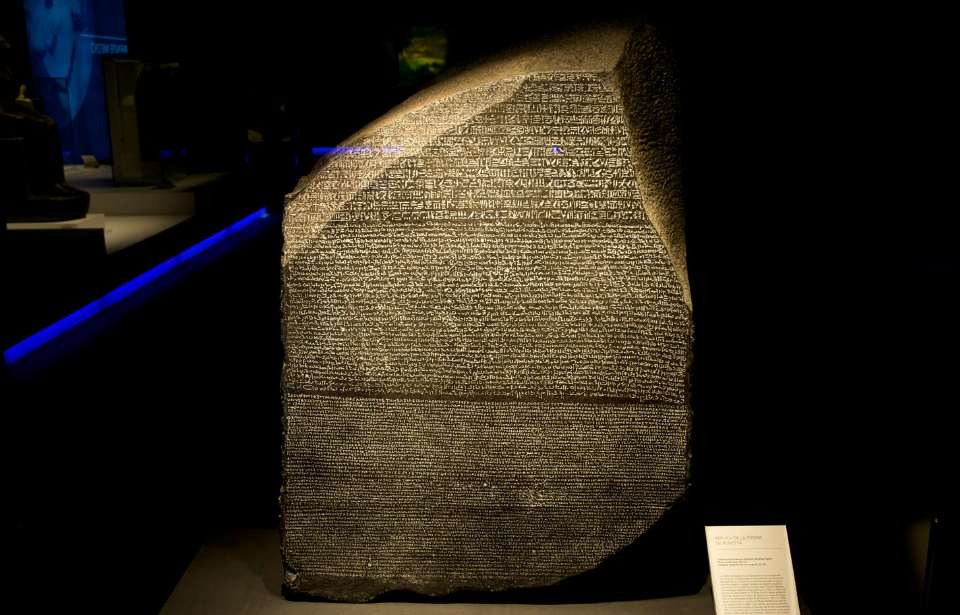The Discovery of the Rosetta Stone
On July 15, 1799, a discovery was made that would forever change the field of Egyptology and our understanding of ancient Egyptian civilization. In the Egyptian village of Rosetta, French Captain Pierre-François Bouchard stumbled upon a large stone inscribed with mysterious texts while overseeing the demolition of a wall during Napoleon‘s Egyptian Campaign. This stone, now known as the Rosetta Stone, became the key to deciphering Egyptian hieroglyphics.
Napoleon’s Egyptian Campaign (1798–1801) was part of a broader effort by France to disrupt British trade routes and establish a French presence in the region. Alongside the military forces, Napoleon brought a group of scholars and scientists to study and document Egypt’s ancient heritage. It was during this campaign that Captain Bouchard made his remarkable find.

The Rosetta Stone is a granodiorite stele measuring about 112 centimeters tall and 75 centimeters wide, with inscriptions in three different scripts: Greek, Demotic, and Egyptian hieroglyphics. The inscriptions were a decree issued in 196 BC by King Ptolemy V. Recognizing the potential significance of the stone, Bouchard reported it to his superiors, and it was soon transported to Cairo for further examination by French scholars.
The true value of the Rosetta Stone lay in its ability to unlock the secrets of Egyptian hieroglyphics, a script that had puzzled scholars for centuries. By comparing the Greek text, which was already understood, with the hieroglyphics and Demotic script, scholars were able to begin decoding the ancient Egyptian language. French scholar Jean-François Champollion and English physicist Thomas Young made significant contributions to this effort, with Champollion ultimately cracking the code in the 1820s.
After the British defeated the French in Egypt in 1801, the Rosetta Stone was handed over to British forces and transported to England. Since 1802, it has been housed in the British Museum in London, where it remains one of the museum’s most visited artifacts. The discovery of the Rosetta Stone marked the beginning of modern Egyptology, opening up the rich history and culture of ancient Egypt to the modern world.
More from us: 10 Incredible Ancient World Discoveries That Have Us Rethinking History
Would you like to see more daily historical content from The Vintage News? What if we sent it directly to your inbox every day? Sign up here to receive our daily Today in History posts.
The Rosetta Stone continues to be celebrated for its pivotal role in our understanding of ancient civilizations. On this day, we remember the significance of Captain Bouchard’s discovery and its profound impact on the study of history.
